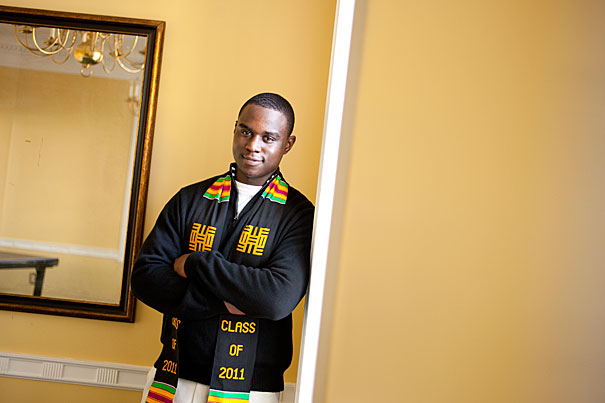Nation & World
-

How academia can help America heal
First step, says columnist David Brooks, is to understand its role in the problem
-

Can Russia be denied?
Ex-POW joins discussion of four-year conflict ahead of another round of negotiations
-
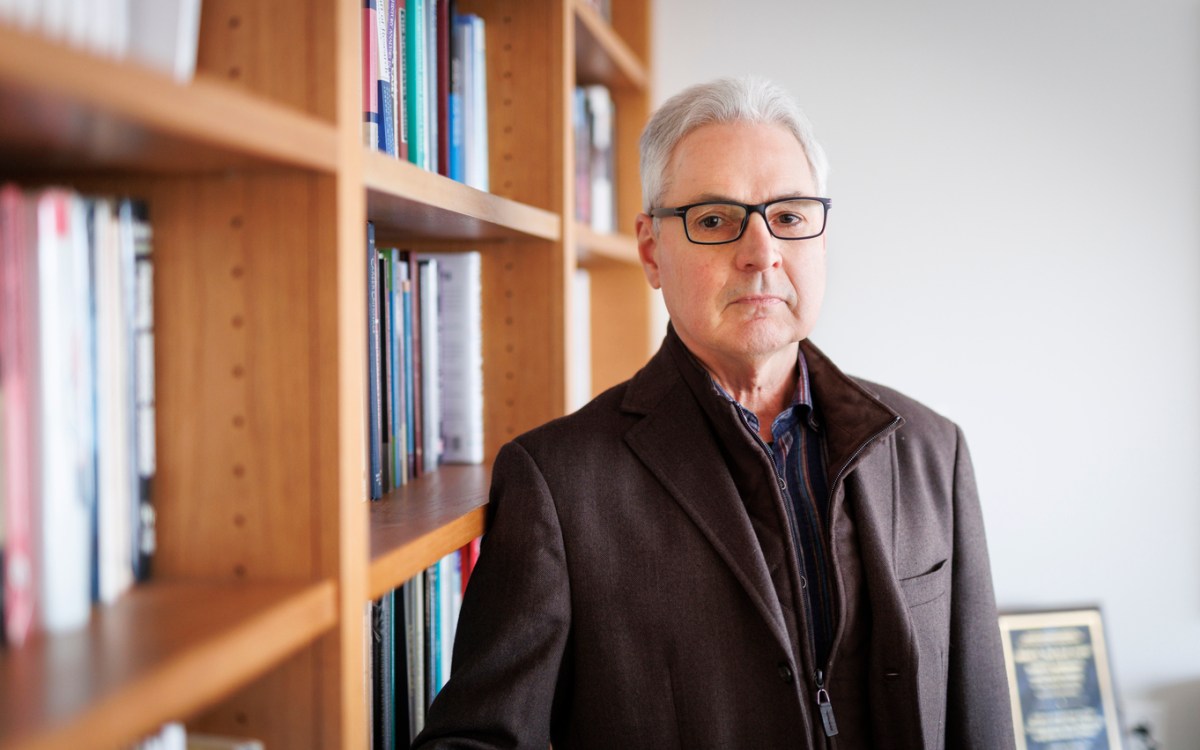
New factor in predicting who becomes criminal: when you were born.
Sociologist Robert J. Sampson investigates plunging arrest rates for youngest millennials
-
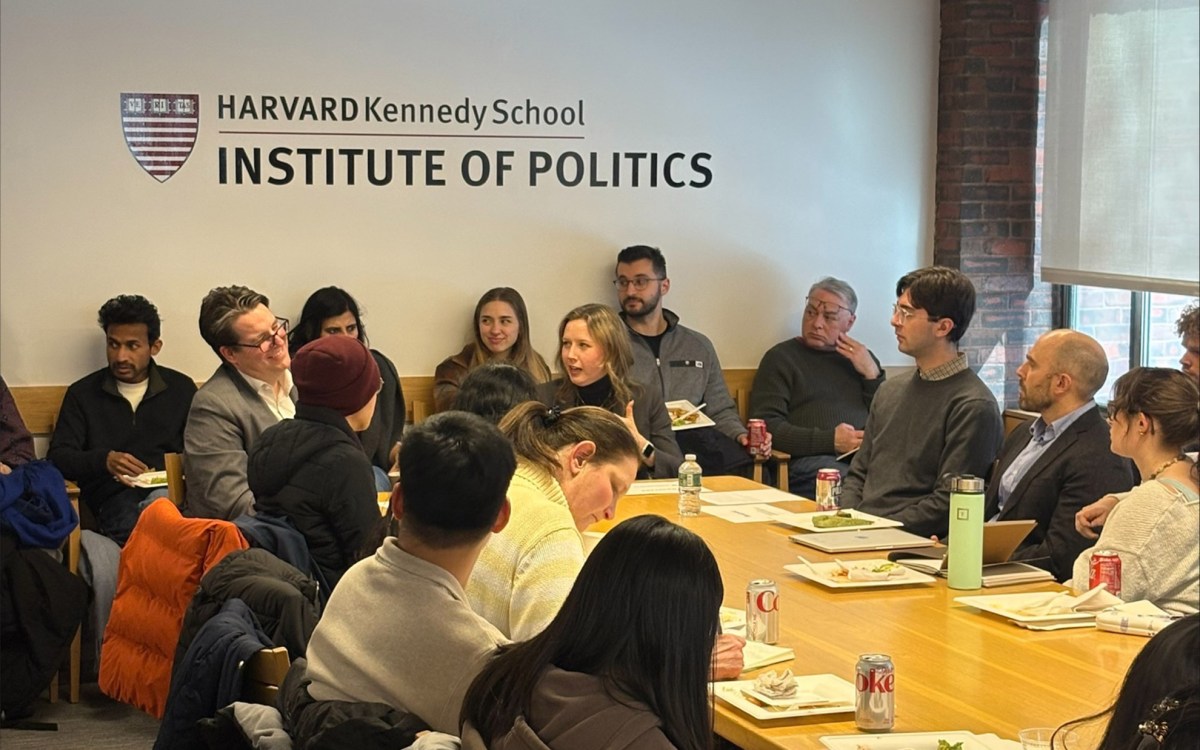
What would the Founding Fathers think of TikTok?
Experts weigh national security concerns against free speech in discussion of video app’s future
-

Worried about how AI may affect foreign policy? You should be.
Experts discuss vulnerabilities, need for oversight of tech development, regulation
-
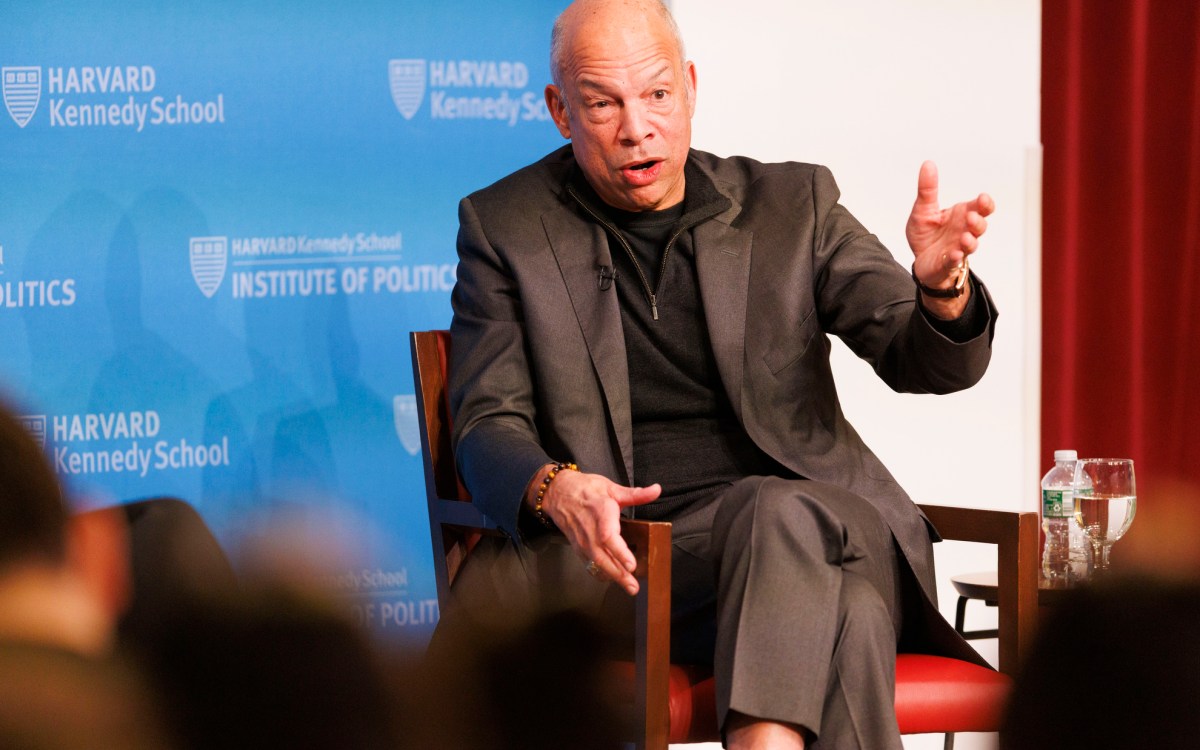
Border security isn’t really the problem
Former Homeland Security Secretary Jeh Johnson says current backlash is owing to cloudy mission, aggressive tactics
-
Ugly America
American politicians no longer politely agree to disagree. On that, participants in a panel talk Sept. 16 at the John F. Kennedy Forum all concurred. On whether there was any chance this would change, there was dispute. Politely, if passionately, expressed.

-
The law before and after 9/11
Michael Chertoff, former U.S. secretary of Homeland Security, outlines the security paradigm shift in the run-up to 9/11 and the factors to consider when creating a new legal architecture to fight terrorism.

-
The ‘vast wasteland,’ reconsidered
Fifty years ago, FCC Chairman Newton Minow famously shocked the nascent television industry out of complacency, calling American television a “vast wasteland.” On Sept. 12, he joined an all-star lineup at Harvard Law School to discuss the problems and potential of the vaster wasteland that now includes elements of the Internet.
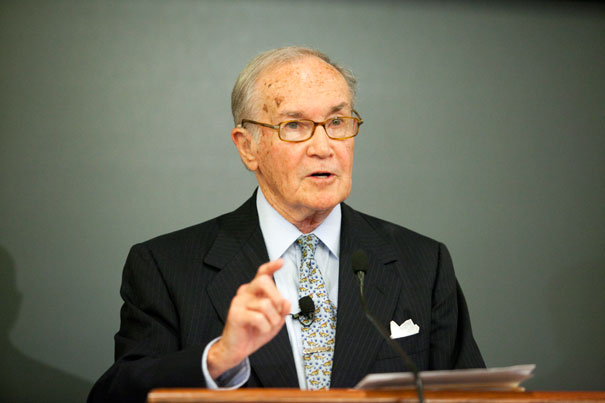
-
‘The Constitution and the Question of Power’
Noah Feldman, Bemis Professor of International Law at Harvard Law School, will deliver a lecture titled “The Constitution and the Question of Power” at 1 p.m. Sept. 19 in Emerson Hall, Room 101. The event is free and open to the public.
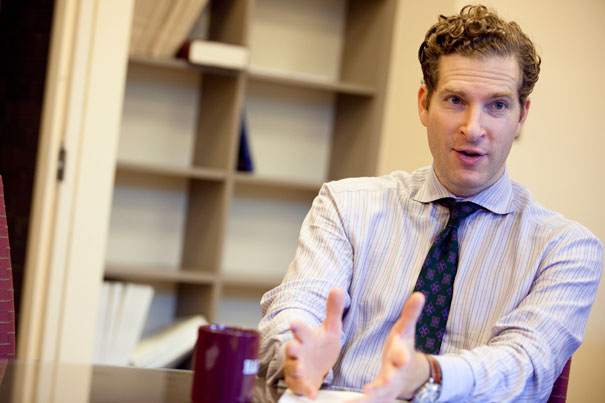
-
Honoring a tireless advocate
Scholars and professionals involved with the labor movement, workplace law, and social policy gathered at the Radcliffe Institute for Advanced Study to honor the life of alumna Clara Schiffer on behalf of working women, and to explore the legacy and prospects of working women.
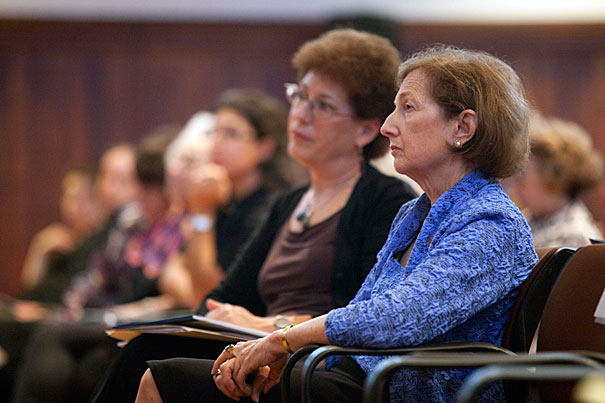
-
Harvard Remembers 9/11
The Harvard community remembers where they were on September 11th and reflects on how it has changed their lives and the world around them.
-
‘Why do they hate us?’
The 9/11 terrorist attacks caused Americans to awaken to the disdain for the nation held by some overseas. It also brought harsh attention to U.S. Muslims and mobilized the nation toward actions it may one day rue, experts said at a panel discussion.

-
Teaching a tragedy
Speakers from the fields of education, history, government, religion, and politics convened at the Harvard Graduate School of Education to examine how, why, and what should be taught to young people about the terror attacks of Sept. 11, 2001.

-
It’s time for diplomacy
Kennedy School panelists say U.S. policymakers should use the 10th anniversary of the 9/11 terror attacks as an opportunity to shift from a military-driven “global war on terror” to a policy built more on diplomacy, outreach, and persuasion.
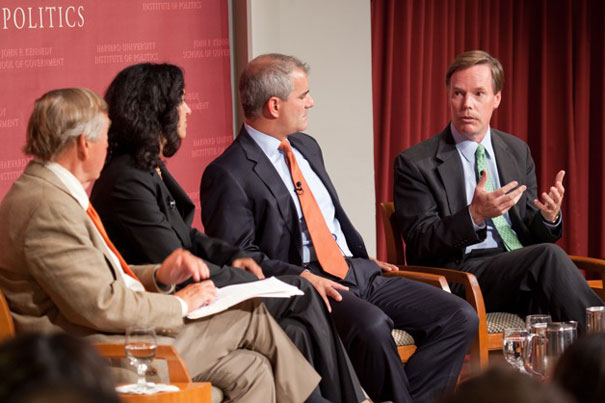
-
In praise of ordinary people
Officials should not forget the important role that ordinary citizens play in the critical hours after a disaster, authorities on disaster response told the Forum at Harvard School of Public Health, during a discussion of how that has changed since the terrorist attacks of Sept. 11, 2001.
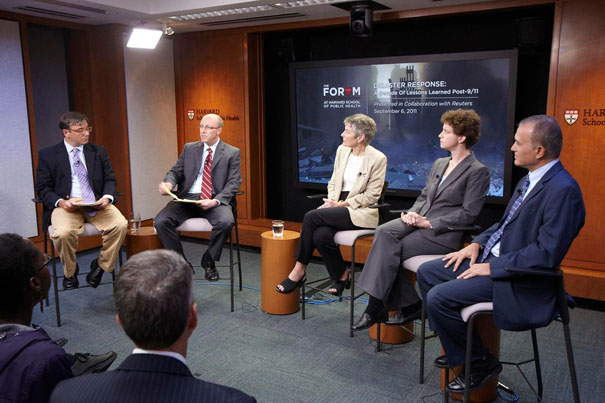
-
New hope for Libyan democracy
Middle East experts are optimistic that democracy may yet flourish in war-torn Libya, now that leader Moammar Gadhafi has been deposed.
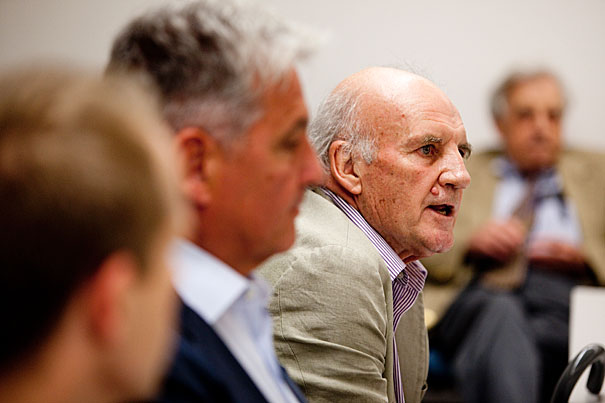
-
The spirit of service
Hundreds of new students descended on the Harvard Kennedy School campus for their first day of classes Aug. 31. That night, a group of illustrious alumni harnessed that energy in a candid dialogue on the challenges and rewards of a career in public service. The talk was a kickoff for the Kennedy School’s 75th anniversary.
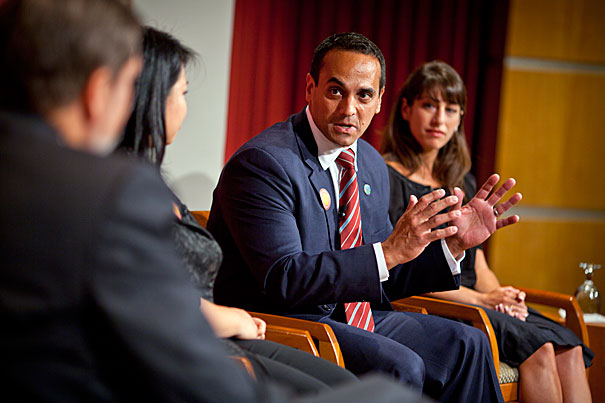
-
How they spent summer
Harvard students and instructors spent their summers in a myriad of ways, and places.
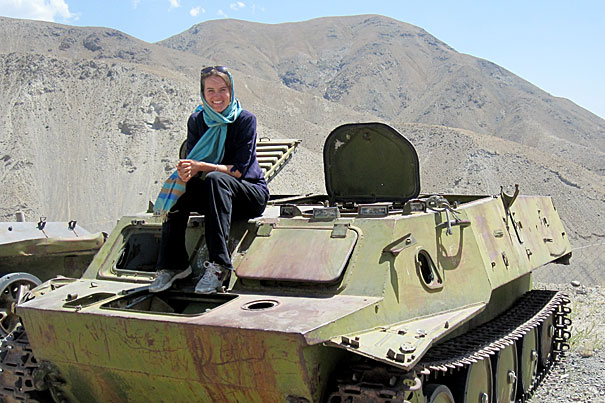
-
Justice for Kenya’s Mau Mau
As a human rights group seeks justice for veterans of an anticolonialist rebellion, a Harvard historian helps to make the case.
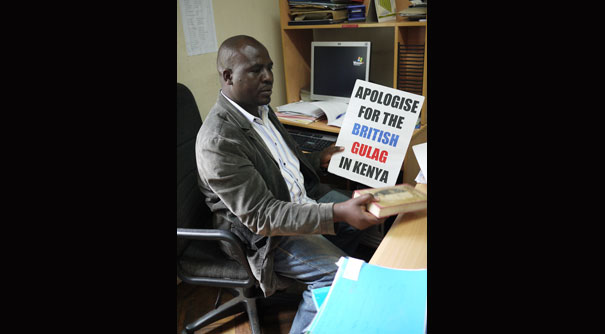
-
True cost of medical malpractice
The debates over health care reform may soon become more informed. A new study undertaken by a group of researchers, including Harvard Kennedy School (HKS) Professor Amitabh Chandra, provides a detailed snapshot of U.S. medical malpractice claims, awards, and frequency by specialty.

-
Closing the workplace gender gap
Behavioral economist Iris Bohnet studies gender gaps in economic opportunity, trust and betrayal aversion, and how these and related issues affect the workings of governments, economies, organizations, and individual interactions.
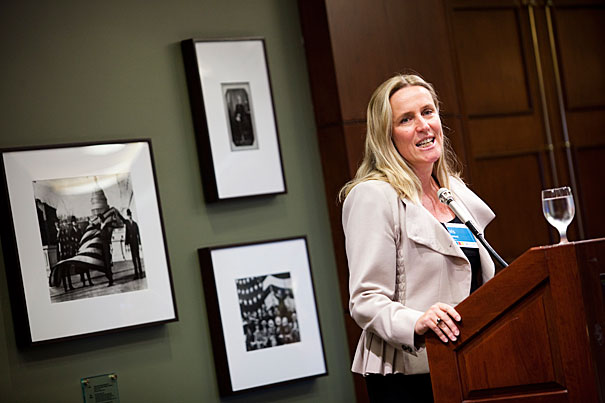
-
Strong evidence
The work of a Harvard history professor has bolstered the case of a group of elderly Kenyans who are seeking reparations from the British government for rape, castration, beatings, and other abuses that they say occurred during colonial-era efforts to suppress Kenya’s Mau Mau uprising.
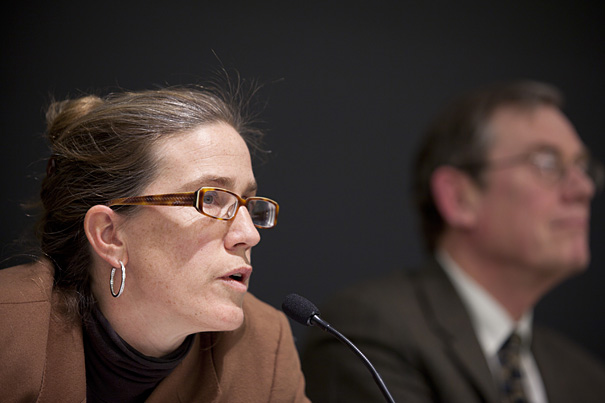
-
How young students think
“Mind in the Making” explores links among social, emotional, and intellectual learning. It was part of a weeklong seminar called “Mind in the Making,” developed by the Harvard Achievement Support Initiative (HASI) as part of the University’s commitment to public service.

-
Tanzania-HSPH AIDS clinic opens
U.S. and Tanzanian government officials opened a new research and treatment center for Tanzania’s sickest AIDS patients Friday (July 22), to be operated by Tanzanian health officials in partnership with the Harvard School of Public Health.
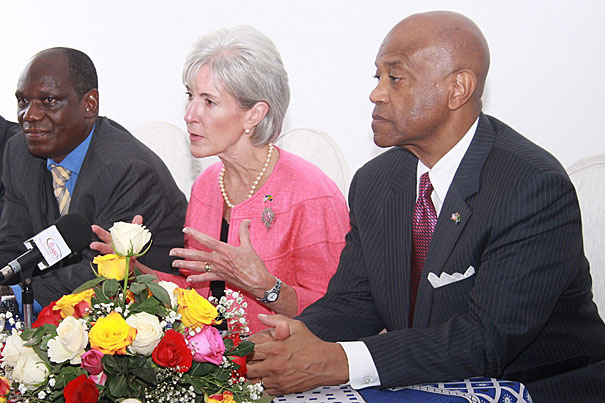
-
Caring voices
The Harvard Graduate School of Education on July 26 released a powerful video in support of the It Gets Better Project. The four-minute video features faculty, staff, and students sharing personal accounts of their childhood experiences and providing support for lesbian, gay, bisexual, and transgender youth.

-
A plan for better banking
A team of researchers at Harvard and in London has created a model of bank failure aimed at helping economies avoid crashes. Their work highlights a fundamental dilemma for regulators: Improving the safety of individual banks may make the financial system as a whole more dangerous.
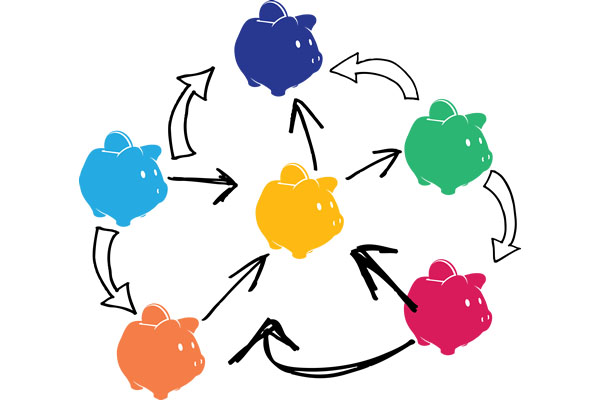
-
Voices of frustration
In an afternoon discussion at the Berkman Center for Internet & Society, investigative journalists from around the world discussed the challenges of reaching a wider audience.
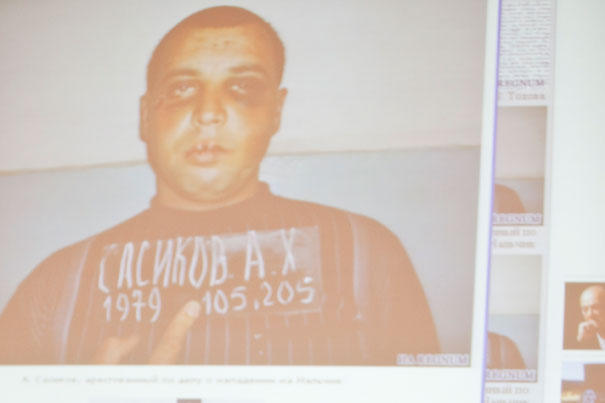
-
Fireworks in the voting booth
Not every child in America has the opportunity to attend Fourth of July celebrations, but those that do are prone to be more politically engaged and associate more closely with the Republican Party than their peers, concludes a Harvard Kennedy School study.

-
2011 Harvard University Commencement Address by Liberian President Sirleaf
President of Liberia, Ellen Johnson Sirleaf, speaks at Harvard’s 2011 Commencement afternoon exercises at history Tercentenary Theater on May 26, 2011.
-
The threat of nuclear terror
Joint U.S.-Russian assessment, produced in part through Harvard Kennedy School, warns of ongoing threat from nuclear terror, and says quick action is needed to avoid attack.
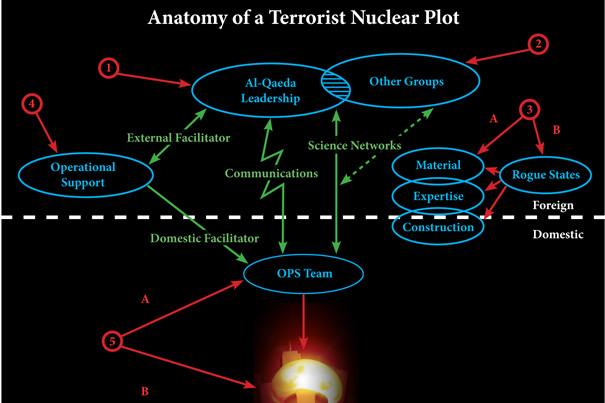
-
Schools of the future
Drawing on their experience as young educators and designers, students from two very different disciplines joined forces to create fresh concepts for daily learning.

-
Transforming from within
Ela Bhatt, a lead women’s organizer in India, spoke about social change and personal transformation on Radcliffe Day.
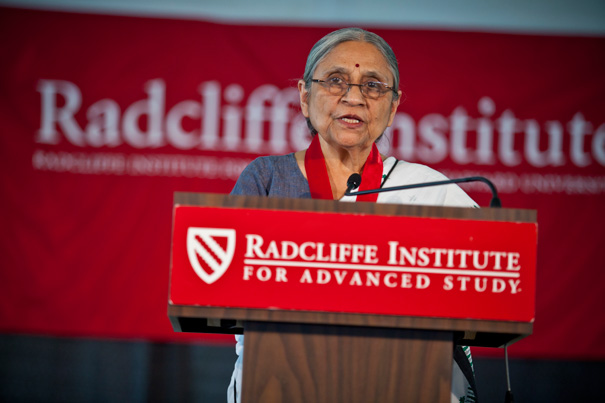
-
Accompanying the underserved
“The road from policy development to implementation is usually long and rocky, one that must be trod with companions,” Paul Farmer, University Professor and co-founder of Partners In Health, told Harvard Kennedy School graduates on May 25.
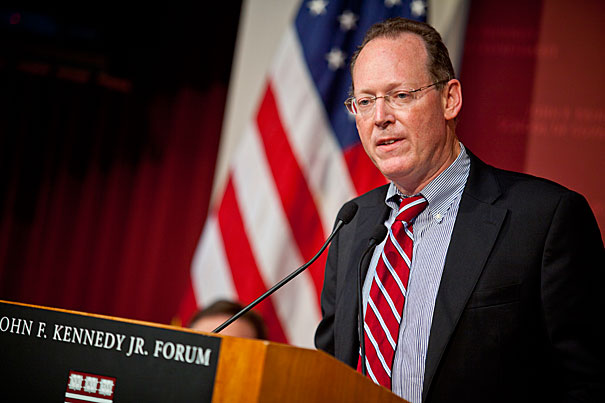
-
Why the immigrants come
Sociology professor analyzes data, learns that groups slip across U.S. border for varied reasons.
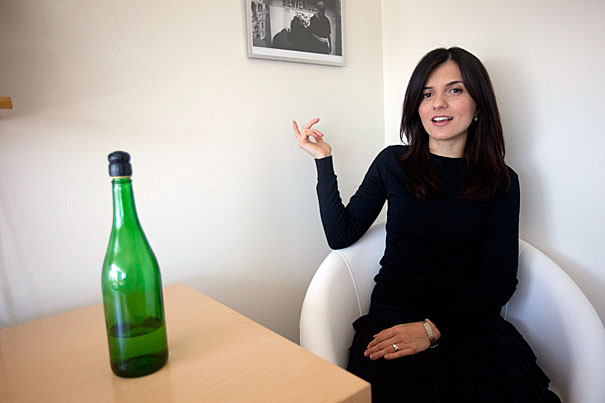
-
Planning a life for others
Before he was a graduate of Harvard, Jeffrey Lynn Hall Jr. was a graduate of the streets of St. Louis, which taught him to look back and to give back.
